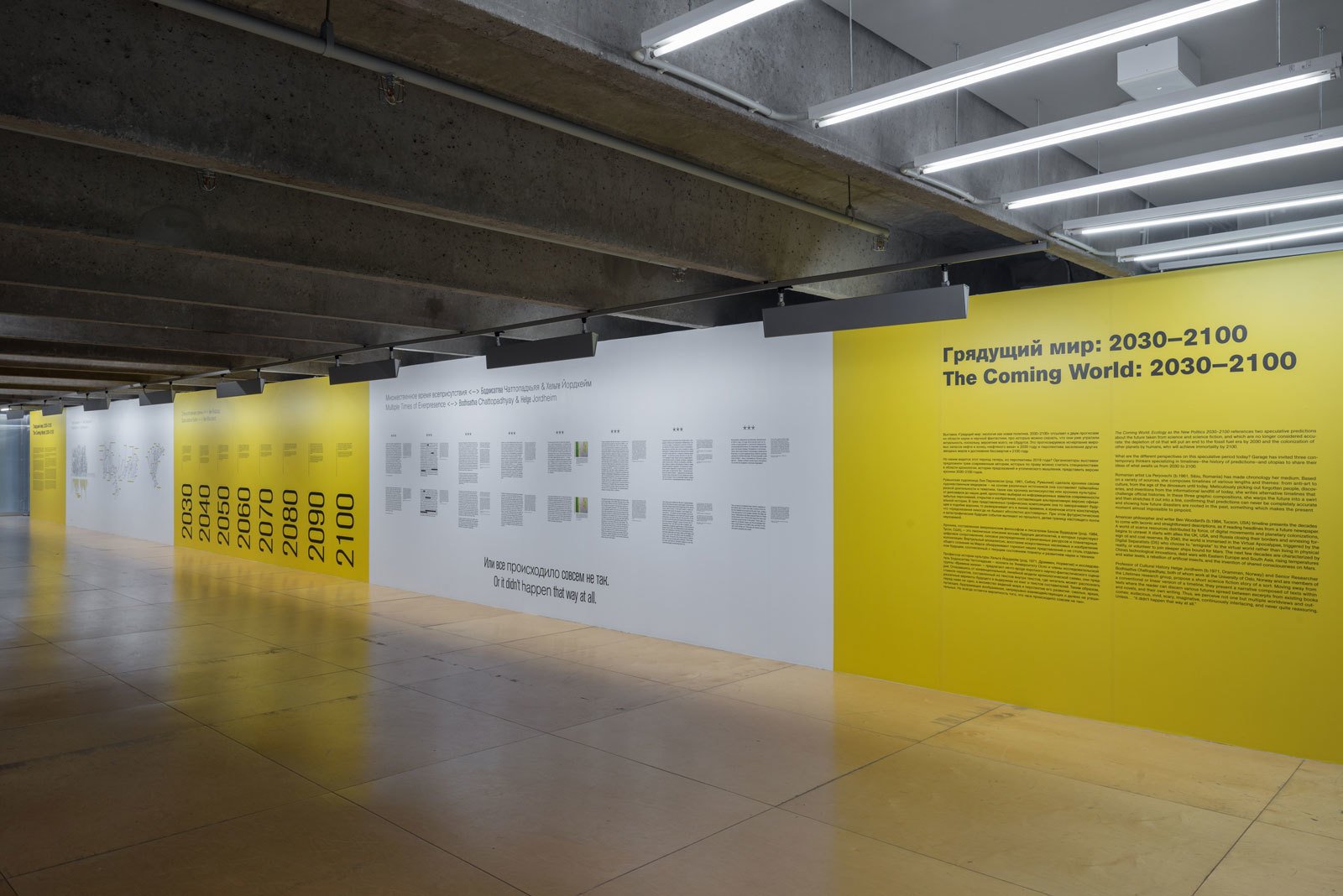The Coming World: 2030–2100

The Coming World: Ecology as the New Politics 2030–2100 references two speculative predictions about the future taken from science and science fiction, and which are no longer considered accurate: the depletion of oil that will put an end to the fossil fuel era by 2030 and the colonization of other planets by humans, who will achieve immortality by 2100.
What are the different perspectives on this speculative period today? Garage has invited three contemporary thinkers specializing in timelines—the history of predictions—and utopias to share their ideas of what awaits us from 2030 to 2100.
Lia Perjovschi
Romanian artist Lia Perjovschi (b.1961, Sibiu, Romania) has made chronology her medium. Based on a variety of sources, she composes timelines of various lengths and themes: from anti-art to culture, from the age of the dinosaurs until today. Meticulously picking out forgotten people, discoveries, and inventions from the informational landfill of today, she writes alternative timelines that challenge official histories. In these three graphic compositions, she warps the future into a swirl and then stretches it out into a line, confirming that predictions can never be completely accurate and showing how future disasters are rooted in the past, something which makes the present moment almost impossible to pinpoint.
Ben Woodard
American philosopher and writer Ben Woodard’s (b.1984, Tucson, USA) timeline presents the decades to come with laconic and straightforward descriptions, as if reading headlines from a future newspaper. A world of scarce resources distributed by force, of digital movements and planetary colonizations, begins to unravel. It starts with allies the UK, USA, and Russia closing their borders and annexing foreign oil and coal reserves. By 2040, the world is immersed in the Virtual Apocalypse, triggered by the Digital Separatists (DS) who choose to “emigrate” to the virtual world rather than living in physical reality, or volunteer to join sleeper ships bound for Mars. The next few decades are characterized by China’s technological innovations, debt wars with Eastern Europe and South Asia, rising temperatures and water levels, a rebellion of artificial insects, and the invention of shared consciousness on Mars.
Helge Jordheim
Professor of Cultural History Helge Jordheim (b.1971, Drammen, Norway) and Senior Researcher Bodhisattva Chattopadhyay, both of whom work at the University of Oslo, Norway and are members of the Lifetimes research group, propose a short science fiction story of a sort. Moving away from a conventional or linear version of a timeline, they present a narrative composed of texts within texts where the reader can discern various futures spread between excerpts from existing books and novels, and their own writing. Thus, we perceive not one but multiple worldviews and outcomes: audacious, vivid, scary, imaginative, continuously interlacing, and never quite reassuring. Unless… “it didn’t happen that way at all.”